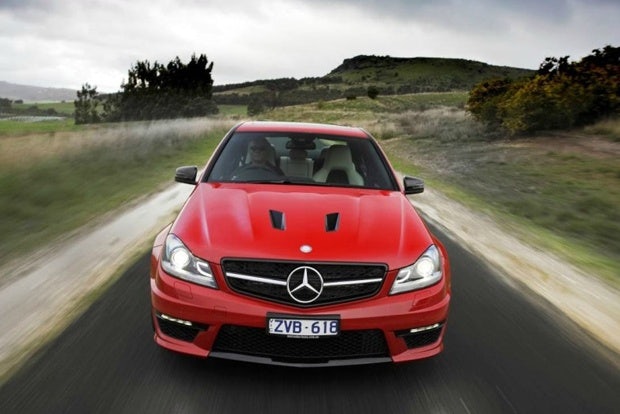
Will Mercedes, China's best performing foreign carmaker, be on CCTV's chopping block this year? (Mercedes)
It’s that time of year again: March 15 is World Consumer Rights Day, when retailers wonder who is going to be next on Chinese state media network CCTV’s chopping block. Every year, CCTV targets one or two companies to shame publicly in their Consumer Rights Day Gala (央视315晚会) show for allegedly abusing consumers’ trust, and this year, speculation abounds that a luxury carmaker may be the target.
According to a prediction at Brand Channel, Mercedes may be the brand of choice for the annual public relations nightmare. That’s because CCTV is not alone in their criticizing endeavor—state news outlet Xinhua recently reported of consumers complaining that their Mercedes has a strange smell, and China Daily even has a special site focusing on customer rights transgressions by companies. This year’s pick could be from any of the foreign carmakers, as the site has especially focused on a spate of foreign car brand recalls this year, including those for BMW, Cadillac, and Volkswagen.
A negative PR blitz has also befallen the auto industry with allegations of price gouging on foreign imported cars. Xinhua admonished foreign carmakers for exorbitant profits and possible price-fixing that even electric carmaker Tesla agrees with.
Despite the bad press, foreign luxury carmakers had a field year in 2013. Mercedes reported 15 percent sales growth in January, pulling ahead of its competitors Audi and BMW. In contrast, domestic carmakers have been losing market share to these booming foreign brands, and they are not happy about it. With these developments, it is not surprising that the media has already been targeting the auto industry this year.
“Relaxing the current foreign ownership restrictions will wipe out Chinese brands,” said the state-run Association of Automobile Manufacturers in a Beijing statement published in a recent Bloomberg article. “Foreign companies can totally use the competitive advantage of their global supply chains to support a price strategy to kill Chinese brands in the cradle.”
Despite CCTV’s efforts to pick on companies, they do not always achieve the effects expected. While their 2012 condemnation of McDonald’s for supposedly selling products past their sell-by date garnered a quick apology from the fast food giant, CCTV’s attack on Apple in 2013 actually backfired. CCTV accused Apple of providing shorter warranty periods than other countries, and that warranties are not extended after being repaired, as per Chinese consumer law. China’s online community quickly saw that the attack on Apple might be orchestrated, and Apple’s approval ratings actually went up following criticism, while CCTV’s credibility went down.
Similarly, when CCTV tried to denounce Starbucks for how its latte prices are pricier in China than in the United States, there was a backlash against CCTV from the Weibo community. Users were saying that CCTV was focusing on trivial issues like Starbucks’ coffee prices instead of hard-hitting issues such as prices of basic necessities and corruption.
Given the unpredictable outcome of CCTV’s annual gala, companies have much to worry about, and are hoping to stay under the radar. With CCTV’s eyes watching the auto market, the German carmaker and its peers are certainly giant target boards right now.